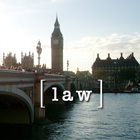
|
RIOTING, ARSON IN FRENCH CITIES BRINGS POLITICAL CRISIS In a tenth consecutive night of rioting, the violence and arson has spread widely to cities throughout France, including Strasbourg, Marseille, Dijon, Bordeaux, Toulouse, Calais, Nantes, Lille and Rennes, as well as Avignon, Cannes and Nice; Wikipedia, the evolving online encycolpedia, listed 30 cities outside the Paris region, from all corners of the nation, to which the violence and/or vandalism had spread, as of dawn French time today. Systematic rioting which began in the marginal immigrant suburbs of northeastern Paris and spread over the past 10 days to ring the city, with arson and police clashes flaring up in nearly 20 marginal suburbs, has now spread throughout a startled and increasingly concerned nation. For the first time, on the 10th night of rioting, the unrest struck central Paris. A youth hostel was burned, which some have seen as an escalation, targeting visitors and foreign tourists, possibly as rioting gangs gain confidence in their ability to influence social policy. French society has been taken unawares by the violence, and while outrage about the violence is almost universal, there is sympathy for the plight of French-born children and grandchildren of immigrants against whom many admit there is virtually institutional discrimination. French society, according to some reports, has until now taken the position that assimilation into French society means essentially becoming French. This is less a cultural or ethnocentric tendency and more a residue of the ideals which spawned the French Revolution two centuries ago. Observers have noted that the French attitude toward newcomers becoming French is rooted in the Enlightenment idea of a universal system of natural rights and reason-based civic order. From that idea, the very notion of being French is distinct in many ways from other ethnic concepts of cultural identity, allowing the French to consider that requiring the adoption of their cultural preferences and political points of view, which cover a wide spectrum, is not to impose their culture on another, but rather to demand that newcomers open up to an existing system grounded in Enlightenment principles of universal rights and justice. It is, ironically, for this same reason that French society has reacted by pressuring its leaders to act now to resolve the ugly marginalization of the peripheral barrios of its major cities, where socio-economic discontent is profound and long-standing. A week ago, Interior Minister Nicolas Sarkozy marked one of the crucial moments of the crisis when he referred to rioters as "scum", a phrase he says was meant to denigrate their behavior, not the communities in which they live. Rioters have publically said they were further stirred by this comment and some reports suggest they want Sarkozy "to pay" for his words. Opposition leaders are now calling for Sarkozy to resign, an unlikely event, considering that he is thought to be aiming for a presidential candidacy in 2007. Pres. Jacques Chirac had remained largely silent throughout the crisis, but faced harsh criticism from political, press and private spheres for what appeared to be an aloof or inactive posture. So, he has called a meeting of his highest officials, in hopes of plotting a succinct and decisive course out of the spreading unrest. Chirac, PM de Villepin, and Sarkozy have all been consistent in saying that peace is a vital precondition to addressing the living conditions of the marginal neighborhoods where crime, unemployment and alienation has residents fed up with what they perceive as "second-class" citizenship. [s]
UPDATE: |
||||||
|
|||||||



